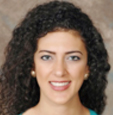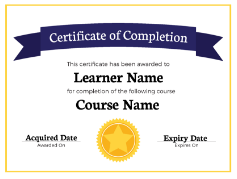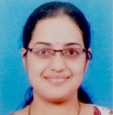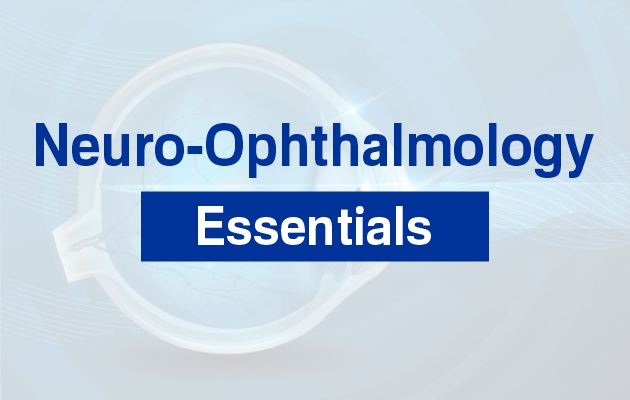Information
Price
100
Language
English
Commitment
6 weeks, 2 hours per week
About This Course
Objective of the course: To be able to Diagnose and Treat Neuro-Ophthalmic conditions.
Eye care providers will often encounter patients with neuro-ophthalmic conditions. These conditions may result in permanent visual loss and even death. It is essential that one be familiar with these conditions and have knowledge of how to recognize, diagnose and treat these potentially devastating problems.
This course will cover the most common, critical and potentially deadly neuro-ophthalmic maladies that every eye care provider will encounter.
The main topics covered include optic nerve and pupil abnormalities, conditions that affect ocular motility, occult visual loss and neuro-ophthalmic manifestations of selected systemic diseases. Each section will include examination techniques, crucial neuro-ophthalmic signs and symptoms, clinical findings and appropriate management. Numerous videos, clinical photographs and imaging studies are used to illustrate relevant abnormalities.
Quizzes throughout the course will ensure knowledge transfer and ultimately facilitate the participant’s familiarity with a wide variety of neuro-ophthalmic conditions.
Meet the Instructor

Dr. Karl Golnik
Cincinnati Eye InstituteDr. Karl Golnik is a Professor and Chairman of the Department of Ophthalmology at the University of Cincinnati and the Cincinnati Eye Institute. He is a Fellowship at Wilmer Eye Institute and practiced Neuro-ophthalmology exclusively for 26 years. Dr.Golnik has published more than 120 papers in neuro-ophthalmology and medical education.

Dr. Ama Sadaka
Lebanese American UniversityDr. Ama Sadaka is an Ophthalmologist and assistant professor at the Lebanese American University Medical Center Rizk Hospital in Beirut, Lebanon. She completed her Medical Degree from the American University of Beirut (AUB) and Ophthalmology Residency at University of Cincinnati. She earned neuro-ophthalmology fellowship at Houston Methodist Hospital along with oculoplastics training.
What will you learn
At the completion of this course the participant will be able to:- recognize normal and abnormal optic discs and characterize the abnormalities.
- identify normal and abnormal pupils and be able to characterize pupillary abnormalities.
- describe the basics of the ocular motility examination and identify common ocular motility abnormalities.
- describe an approach to the patient who has visual loss or symptoms but has a “normal” examination.
- describe and identify neuro-ophthalmic manifestations of common systemic diseases.
View Syllabus
- Optic Disc Examination
- Examination
- Congenital anomalies
- Acquired abnormalities
- Optic Neuropathies
- Diagnosis
- Inflammatory
- Infectious
- Ischemic
- Papilledema
- Miscellaneous
- Pupils
- Examination
- Relative afferent pupillary defect
- Anisocoria
- Light-near dissociation
- Unexplained Visual Loss
- Refractive/media
- Retinal
- Optic nerve/visual pathway
- Non-organic
- Ocular Motility
- Examination
- Fusional abnormalities
- Cranial nerve palsies
- Inter/supranuclear
- Myasthenia gravis
- Muscle
- Nystagmus: Childhood
- Nystagmus: Adult
- Neuro-ophthalmic manifestations of systemic diseases
- Multiple sclerosis
- Thyroid eye disease
- Sarcoidosis
- Cerebrovascular
CME Disclosure
The information in this educational activity is provided for general medical education purposes only and is not meant to substitute for the independent medical judgment of a physician relative to diagnostic and treatment options of a specific patient's medical condition. The viewpoints expressed in this CME activity are those of the authors/faculty. They do not represent an endorsement by DocMode. In no event will DocMode be liable for any decision made or action taken in reliance upon the information provided through this CME activity.
The following faculty have indicated they have no relationship which, in the context of their presentations, could be perceived as a potential conflict of interest:
Dr. Karl Golnik
Dr. Ama Sadaka
DocMode and The Pan American Association of Ophthalmology (PAAO) acknowledge that no educational grants were received for the creation of this Internet Enduring activity.
Certified by
Pan American Association of Ophthalmology (PAAO)
Certification Benefit

-
Official and Verified:
Receive an instructor-signed certificate with the institution's logo to verify your achievement and increase your job prospects.
-

Easily Shareable:
Add the certificate to your CV or resume, or post it directly on LinkedIn.
-

Support our Mission:
DocMode aims to create a value-based Online Learning experience for Health professionals globally.
-
Proven Motivator:
Give yourself an additional incentive to complete the course.
Learner Testimonials
"Neuro ophthalmology has always been my favorite and I am very glad to have completed the course. The topics along with mind maps were categorized well thus covering the whole subject. I also loved the way Dr. Golnik put forth a number of cases accompanied by the learnings through each case, by far the best way to be a subject expert.”
 Dr. Madhurima Nayak
Dr. Madhurima Nayak
Consultant Ophthalmologist,
Yenepoya Speciality Hospital, Karnataka.
“A highly beneficial course for ophthalmology practitioners that is helpful in both decision making and in day-to-day practice. The course was easily accessible, easy to understand and the content presented also matched my expectations. I would like to congratulate the staff and the course creators for their unparalleled efforts in designing such a well rounded course.”
 Dr. Abu Siddik
Dr. Abu Siddik
Sr. Medical & Health Officer, Govt. of Assam,
Barpeta Civil Hospital, Assam.
“This course helped me to gain better practical knowledge which is helpful in my daily practice. I am now better equipped to deal with neuro ophthalmology cases better than before. The distinctive course format allowed me to revise and complete the course content at my own convenience.”
 Dr. Ravikiran Potluri
Dr. Ravikiran Potluri
Associate Professor,
Dr.Pinnamaneni Siddhartha Institute of Medical sciences & Research foundation, Andhra Pradesh.


